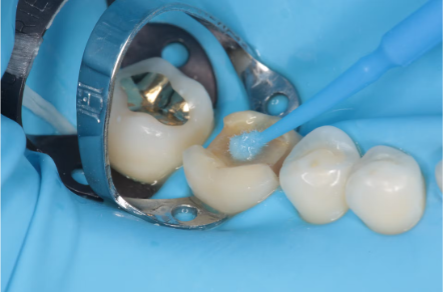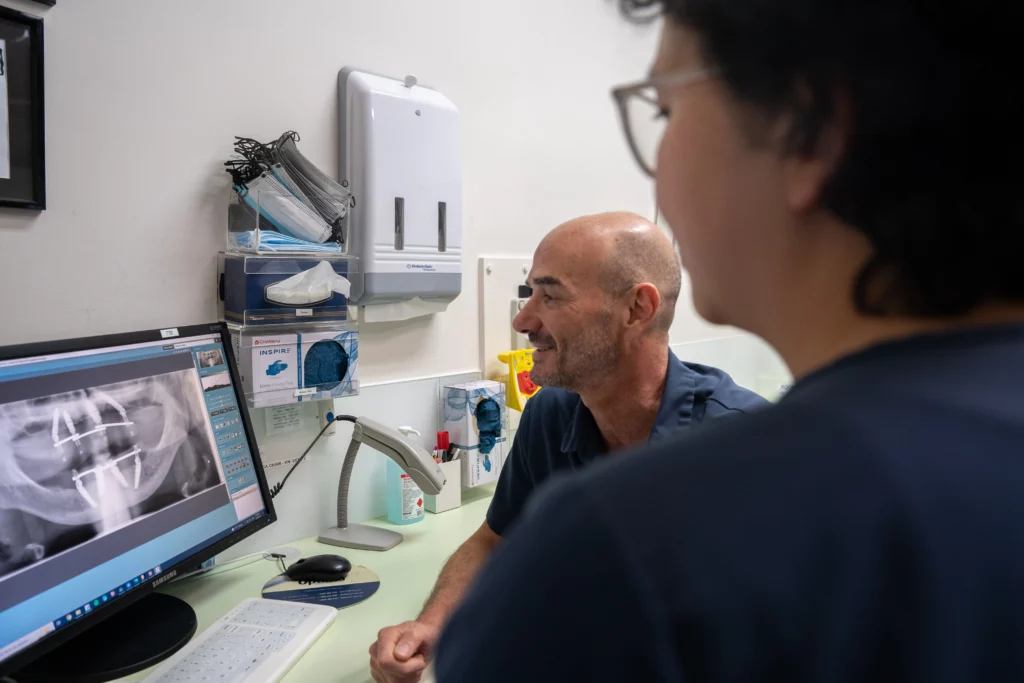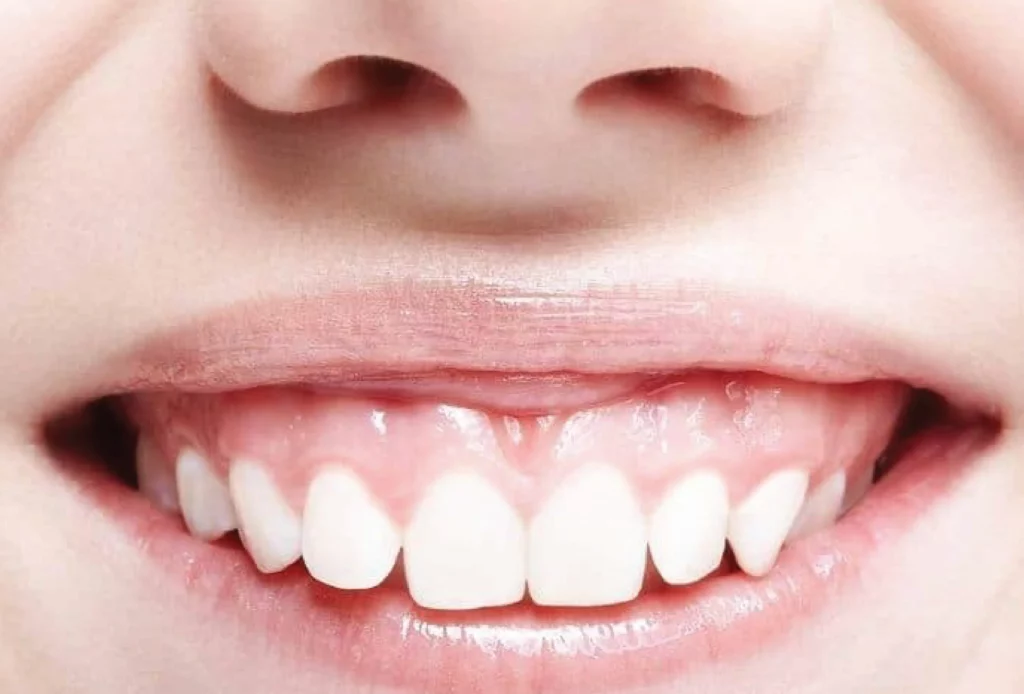A dental implant restoration is a safe way to replace one or more missing teeth and prevent a number of dental problems. However, getting an implant requires some changes to your everyday routine to ensure it works properly and lasts. Learn how to look after a new implant with our important dental implant aftercare tips.
How long do dental implants take to heal?
The healing time for a dental implant can be lengthy, but it is incredibly important to not rush this for the longevity of your implant. The healing phase includes a process known as osseointegration, which is when the dental implant titanium post fuses with the surrounding jawbone. This usually takes between 3 to 4 months, depending on the nature and the complexity of the surgery.
To ensure osseointegration can progress smoothly, it is vital to follow all of the aftercare instructions given to you by your dental surgeon. This may involve making some changes to your diet and lifestyle in the months following surgery, but ensuring your implant fuses properly can save you from future problems such as infection, discomfort, and bone loss that will necessitate needing a replacement implant or reparative surgery in the future.
How long do dental implants last?
Once an implant has fused to the bone in your jaw, it should last for the rest of your life with the right care, adequate home hygiene and regular professional cleaning. Unfortunately, the dental crowns or prostheses attached to the implant have durability limitations, typically needing a replacement every 5 to 15 years depending on the situation.
Thankfully, this replacement process is much simpler than having completing the full treatment again. In cases where the implant remains healthy and the crown / prosthesis requires replacement due to wear and tear or damage, a simple new impression is all that the laboratory needs to fabricate a new custom-made replacement.

Immediate post-surgery dental implant aftercare instructions
We recommend keeping the entire day of your surgery free to rest at home after the procedure. Implant surgery is performed under local or general anaesthesia, so you should not feel any pain from the dental implant site for a few hours after your surgery. However, when the anaesthetic wears off you may begin to feel some discomfort, which you can relieve in most cases using over-the-counter pain medications. We also recommend that you wrap an ice pack in a towel and place it on your face, adjacent to the surgical site to help ease pain and reduce swelling.
The first few days after your implant surgery are key in determining whether your implant will fuse properly and last. Bleeding from the surgical site is rare after leaving the clinic, and can be relieved by applying mild pressure with moistened gauze against the wound. Patients must avoid ‘self-inspecting’, touching or poking the surgical site, as this may disrupt healing and cause the wound to start bleeding again.
Oral care
For the first few days after surgery, patients should avoid brushing the surgical site. It is important to still brush and floss the rest of your teeth, but to do so gently without affecting the area where the new implant is. To keep the implant area clean and healthy, you can mix salt with warm water to create a basic antiseptic rinse, and gently swill it around your mouth every couple of hours and then spit it out. Rinsing your mouth with water after meals will also help prevent food and plaque from building up in your teeth.
What to eat after dental implant surgery
What you eat and drink will play a big role in your dental implant recovery and the health of your implant. For at least the first 48 hours, patients should stick to a liquid diet or eat away from the surgical site. If you have had one or both of your jaws restored with ‘Full Arch Dental Implants’ (All On 4, All on 4 plus, All on X, All on Implants, NeoArch, ProArch etc.) it will be necessary to remain on a soft diet and stay away from any hard, sticky or crunchy foods for 3-4 months.
Hot foods and drinks can negatively affect the soft surgical site and should also be avoided. Spicy foods may also irritate your wound and surgical site and prolong your recovery. Make sure you also do not use a straw for your drinks, as the suction created in your mouth may disrupt the blood clot and promote more bleeding.
With drinks, it is best to stick to cold water where possible, and to completely avoid hot beverages and alcohol in the first 48 hours. After that, you can begin incorporating drinks like coffee, tea and wine into your diet in moderation. Once an implant is restored, brushing and rinsing after drinking or eating highly coloured foods will help to keep your implant prosthesis and your teeth free from stains.
It is important to be conscious of what you eat throughout your entire healing process. To make it easier, your dentist will help you understand which foods are good to include in your diet and which to avoid until your healing period is complete.
Lifestyle
To avoid irritating or damaging the healing surgical site and the wound, you should avoid heavy exertion or exercise for the first 3-4 days after surgery. In the initial period after surgery, we recommend sticking to light activity. Depending on the number of implants placed and the complexity of the treatment, most patients after a week or so can resume regular exercise.
Smokers will always have a higher risk of implant failure, soft tissue healing complications and bone loss about the implant. It is recommended that smoking is ceased at least 1 month prior to surgery and not taken up again until at least the time the prosthesis is attached. Of course we recommend total smoking cessation for all our patients. Smoking too much is likely to cause bone deterioration about the implant and can also lead to decay of your teeth and further complicate gum / periodontal disease.

Signs of damage
While proper dental implant aftercare should ensure it heals without complications, it is possible that the implant will become damaged and fail during the healing phase. One of the signs your implant isn’t healing properly is pain that continues past the first few days after surgery, including discomfort when chewing and biting. If you feel any pain from the area about your implant you should make an appointment with your dentist ASAP to review the area.
Other signs to look out for include persistent swelling, gum inflammation and/or gum recession, as well as the feeling that your implant or prosthesis is loose. If you are concerned about problems with your implant, please call to make an appointment with your dentist immediately to enable a quick resolution. Delaying attention can only result in the problem becoming more severe and can compromise the prognosis of your dental implant treatment.
Safe and secure implants
Before your surgery, have a discussion with your dentist about what the coming months will look like and how you can best prepare. When appropriately looked after, dental implants are a safe and long lasting treatment option. Explore our implant options or book an appointment today to find out how we can help you.



